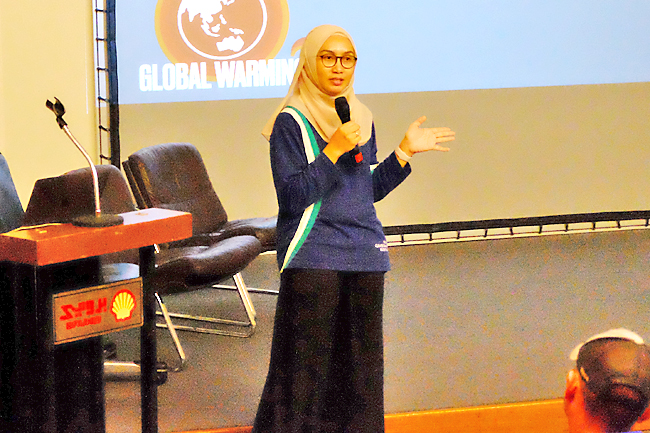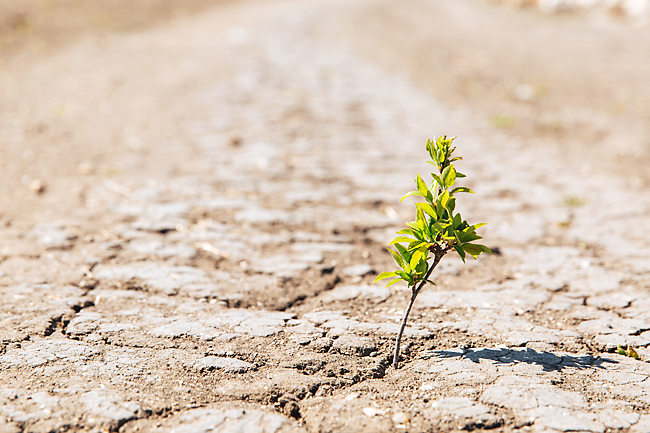The Government of Brunei Darussalam has taken serious views on climate change. The Brunei Darussalam National Council on Climate Change (BNCCC) announced the Brunei Darussalam National Climate Change Policy (BNCCP), which is forged as a whole-of-nation approach in paving pathways towards a low carbon and climate-resilient Brunei Darussalam with the active participation of various other ministries and the general public.
Brunei Climate Change Secretariat Head Noor Dina Zharina binti Haji Yahya revealed 10 key strategies in addressing climate change issues at an environmental awareness event last December, and called for the participation of all stakeholders to support the agenda.
The policy on ‘Industrial Emissions’ is led by the Ministry of Energy (ME) who can increase capacity and technical expertise in low-carbon processes and technologies, practise energy efficiency and conservation as well as research into carbon capture, utilisation and storage.
Its strategic objectives are towards zero routine flaring, practice ALARP (As Low As Reasonably Practicable) and establish a long-term target.
This is projected to reduce 52 per cent reduction in overall greenhouse gas (GHG) emissions by 2035.
 Brunei Climate Change Secretariat Head Noor Dina Zharina binti Haji Yahya speaks during the environmental awareness event last December. PHOTO: RIZAL FAISAL
Brunei Climate Change Secretariat Head Noor Dina Zharina binti Haji Yahya speaks during the environmental awareness event last December. PHOTO: RIZAL FAISAL
The Ministry of Primary Resources and Tourism is leading the strategy on ‘Forest Cover’, pledging to strengthen regulations for all deforestation activities, identify areas for carbon sink expansion, provide nature-based solutions as a nature buffer from effects of development as well as establish platforms to financially support afforestation and reforestation.
If the key targets towards preservation are met – 72 per cent forest coverage, increasing forest reserves from 41 per cent to 55 per cent with 109,920 trees to be planted and promotion, and expanding replantation area in all sectors (scoped) with 500,000 new trees – it will contribute to an overall 0.1 per cent GHG Emission reduction by 2035.
Meanwhile, the promotion of ‘Electric Vehicles’ (EV) with the joint leads of the Ministry of Transport and Infocommunications and the ME, is aimed at developing policies and programmes for EV deployment. The ministries are collaborating with key agencies from all sectors to promote EV, identifying and implementing measures to shift public preference as well as develop measures to manage use of EV. This contributes to one per cent in overall GHG emission reduction by 2035.
The key strategies also emphasise ‘Renewable Energy’, led by the ME, to increase total share of renewable energy to at least 30 per cent of total capacity in the power generation mix.
The public is encouraged to participate by installing solar photovoltaic (PV) panels at their homes, while the government increases capacity and technical knowledge in renewable energy and research into alternative fuels.
This is projected to contribute to another one per cent to overall GHG emission reduction by 2035.
Another six per cent reduction on overall GHG emission by 2035 is targetted with the Ministry of Energy’s lead in ‘Power Management’.
The government will be establishing a conducive environment for Energy Efficiency and Conservation at both supply and demand, maximise available clean electricity resources across the border, enhance Temburong District electrification and optimise generation and load dispatch.

The public can complement the government efforts by turning off their electrical appliances when not in use, making better choices by buying energy efficient lightings, air-conditioners and other electrical appliances and invest in zero/low energy design homes.
Meanwhile, the Brunei Climate Change Secretariat will look into carbon pricing, such as imposing price on carbon emissions with comprehensive assessment, MRV system (monitoring, reporting and verification) and establishing mechanisms to allow carbon trading as an option.
A big portion of the public role can contribute to reducing 0.3 per cent in overall GHG emissions by 2035 by a strategic move led by the Ministry of Development in ‘Waste Management’, which includes reducing municipal waste to landfills to one kilogramme, per person, per day; by refuse, reduce, reuse and recycle; segregating waste, thinking before tossing away; and planning purchases.
‘Climate Resilience and Adaptation’ is an objective jointly led by the Brunei Climate Change Secretariat and the National Disaster Management Centre, which aims to increase capacities to adapt to climate related disasters, integrate climate science for future strategies and policies, increase collaboration between the government and key agencies as well as local food production adapting to the impact of changing climate.
The secretariat will carry out its ‘Carbon Inventory’ to make every GHG emission and sink count, calling on industries to report figures and learn to calculate carbon at carbon.green-brunei.com.
The Ministry of Education, with the secretariat’s expertise, will be increasing awareness and education surrounding mitigation and adaptation responses against climate change.













